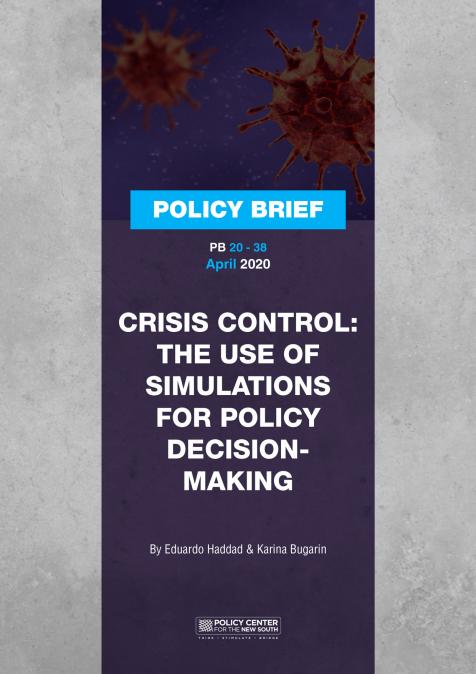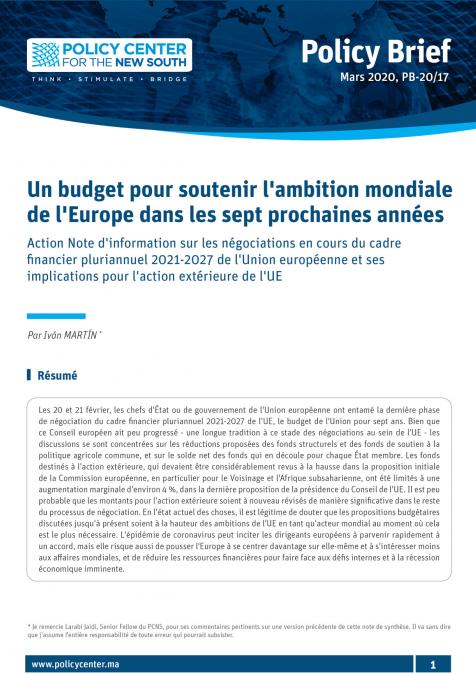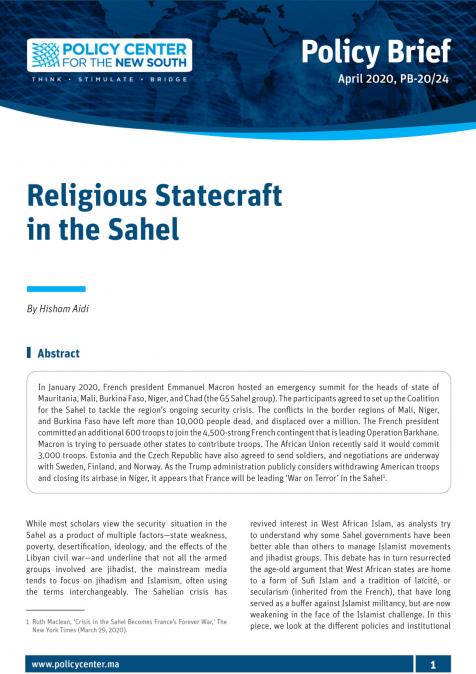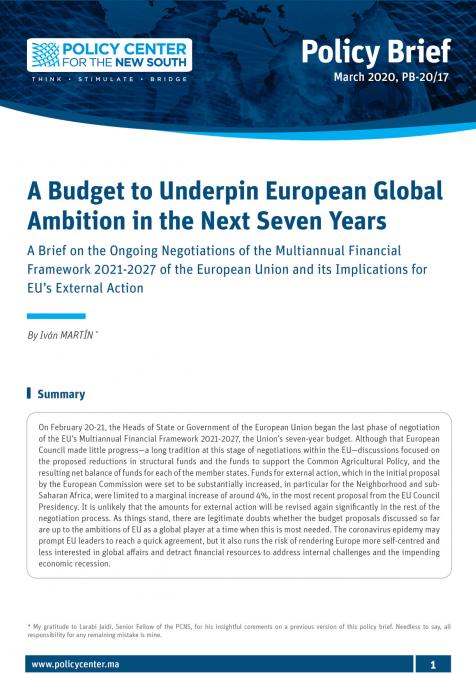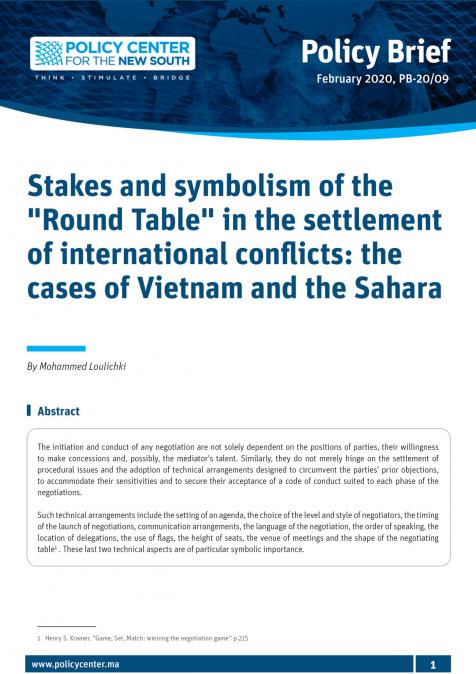The Middle East faces a web of complex crises driven by historical legacies, regional power struggles, and ongoing geopolitical tensions. Among these crises, the Israeli-Palestinian conflict stands out as a deeply entrenched issue, marked by competing national aspirations and territorial disputes. The region’s challenges are further compounded by a mix of deeply rooted conflicts, sectarian divides, and the influence of both regional and global actors. These crises have far-reaching implications, affecting global security, economic stability, and international diplomacy. Understanding the dynamics of these conflicts requires a comprehensive view of their historical contexts and current geopolitical shifts. In this interview, our columnist Helmut Sorge hosts Charles Kupchan, Senior Fellow at the Council on Foreign Relations (CFR). Kupchan shares insights into the underlying factors shaping the Middle East's past and ongoing crises, including the Israeli-Palestinian conflict. He explores the roles of major international players and discusses potential paths toward resolution, shedding light on the region’s complex landscape and its broader impact on global affairs.
RELATED CONTENT
-
AuthorsApril 29, 2020La transition politique de l’Égypte, depuis 2011, a été tout aussi turbulente que sa transition économique. Tous les efforts de l’Egypte post-Moubarak se sont articulés autour de la relance économique, la stabilisation macroéconomique et politique et du renforcement de la sécurité interne du pays. Suite à l’accord avec le Fonds monétaire international (FMI), en 2016, l’Egypte a mené plusieurs réformes économiques qui ont, pu relancer la croissance économique et donner des résultats ...
-
AuthorsKarina BugarinApril 24, 2020In face of the worldwide COVID-19 pandemic, use of evidence may be key to timely and precise decision-making. This policy brief explores the use of simulations in policy decisionmaking in the Brazilian State of São Paulo in fighting the COVID-19 pandemic. We draw briefly on the literature on evidence-based public policy to highlight the exacerbated need for timely decision-making and the role evidence plays in guiding high-level decisionmakers amidst a crisis. We present examples of ...
-
 Authorsالطيب بياضApril 23, 2020لم تكن الأوبئة التي ساهمت، إلى جانب المجاعات، في تحديد الواقع الديموغرافي لمغرب ما قبل الاستعمار، بالشيء الجديد الطارئ على هذا البلد، الذي ارتبط استقرار نموه البشري بمحددات طبيعية، عجز لحدود تلك الفترة في التحكم فيها. فالوباء ضارب في القدم، وساق في طريقه إلى الحتف جماعات وأفراد من شعوب وأمم مختلفة، اختلفت في تمثله والتعامل معه، بين اعتباره قضاء وقدرا أو عقابا إلاهيا. ولما كان الفشل مصير العديد من محاولات درئه أو التصدي له أو الشفاء منه، فقد كان طبيعيا أن يتم استبطان ثقافة سلبية في ا ...
Authorsالطيب بياضApril 23, 2020لم تكن الأوبئة التي ساهمت، إلى جانب المجاعات، في تحديد الواقع الديموغرافي لمغرب ما قبل الاستعمار، بالشيء الجديد الطارئ على هذا البلد، الذي ارتبط استقرار نموه البشري بمحددات طبيعية، عجز لحدود تلك الفترة في التحكم فيها. فالوباء ضارب في القدم، وساق في طريقه إلى الحتف جماعات وأفراد من شعوب وأمم مختلفة، اختلفت في تمثله والتعامل معه، بين اعتباره قضاء وقدرا أو عقابا إلاهيا. ولما كان الفشل مصير العديد من محاولات درئه أو التصدي له أو الشفاء منه، فقد كان طبيعيا أن يتم استبطان ثقافة سلبية في ا ... -
 AuthorsApril 22, 2020Initialement prévues en 2018, et reportées à deux reprises, les élections législatives et municipales ont finalement pu se tenir le 9 février dernier dans un contexte marqué par l’affrontement armé en zone anglophone entre forces gouvernementales et séparatistes, ainsi que par le refus de participer d’un des principaux partis de l’opposition. Un recul notable de l’opposition Une lecture des résultats du scrutin du 9 février, tels qu’annoncés par le Conseil Constitutionnel, mo ...
AuthorsApril 22, 2020Initialement prévues en 2018, et reportées à deux reprises, les élections législatives et municipales ont finalement pu se tenir le 9 février dernier dans un contexte marqué par l’affrontement armé en zone anglophone entre forces gouvernementales et séparatistes, ainsi que par le refus de participer d’un des principaux partis de l’opposition. Un recul notable de l’opposition Une lecture des résultats du scrutin du 9 février, tels qu’annoncés par le Conseil Constitutionnel, mo ... -
 AuthorsApril 9, 2020Our Senior Fellow, Len Ishmael has contributed to the Quarterly Journal by Beyond the Horizon ISSG (Volume 3 Issue 1), under the theme « Influencing and Promoting Global Peace and Security Horizon Insights », with a Policy Paper where she addresses China’s use of crises to « deepen and extend power and influence in Europe and the world ». Standing in solidarity with countries in Europe and elsewhere in the fight against COVID-19, China scores a diplomatic coup and extends its claim ...
AuthorsApril 9, 2020Our Senior Fellow, Len Ishmael has contributed to the Quarterly Journal by Beyond the Horizon ISSG (Volume 3 Issue 1), under the theme « Influencing and Promoting Global Peace and Security Horizon Insights », with a Policy Paper where she addresses China’s use of crises to « deepen and extend power and influence in Europe and the world ». Standing in solidarity with countries in Europe and elsewhere in the fight against COVID-19, China scores a diplomatic coup and extends its claim ... -
AuthorsApril 8, 2020Les 20 et 21 février, les chefs d'État ou de gouvernement de l'Union européenne ont entamé la dernière phase de négociation du cadre financier pluriannuel 2021-2027 de l'UE, le budget de l'Union pour sept ans. Bien que ce Conseil européen ait peu progressé - une longue tradition à ce stade des négociations au sein de l'UE - les discussions se sont concentrées sur les réductions proposées des fonds structurels et des fonds de soutien à la politique agricole commune, et sur le solde n ...
-
AuthorsApril 8, 2020In January 2020, French president Emmanuel Macron hosted an emergency summit for the heads of state of Mauritania, Mali, Burkina Faso, Niger, and Chad (the G5 Sahel group). The participants agreed to set up the Coalition for the Sahel to tackle the region’s ongoing security crisis. The conflicts in the border regions of Mali, Niger, and Burkina Faso have left more than 10,000 people dead, and displaced over a million. The French president committed an additional 600 troops to join t ...
-
 AuthorsMarch 30, 2020.publication_wrapper ul li{ list-style:disc} .publication_wrapper ul{ padding:0 0 25px 30px;} Depuis le 12 mars, les frontières et les communications aériennes, maritimes et terrestres entre l’Espagne et le Maroc sont fermées à cause de la crise du COVID-19. Mais au-delà de la fermeture transitoire des frontières, la crise sanitaire, doublée de la crise économique qui se laisse déjà ressentir en Espagne, aura un fort impact sur un million de ressortissants marocains résidant en Esp ...
AuthorsMarch 30, 2020.publication_wrapper ul li{ list-style:disc} .publication_wrapper ul{ padding:0 0 25px 30px;} Depuis le 12 mars, les frontières et les communications aériennes, maritimes et terrestres entre l’Espagne et le Maroc sont fermées à cause de la crise du COVID-19. Mais au-delà de la fermeture transitoire des frontières, la crise sanitaire, doublée de la crise économique qui se laisse déjà ressentir en Espagne, aura un fort impact sur un million de ressortissants marocains résidant en Esp ... -
AuthorsMarch 24, 2020On February 20-21, the Heads of State or Government of the European Union began the last phase of negotiation of the EU’s Multiannual Financial Framework 2021-2027, the Union’s seven-year budget. Although that European Council made little progress—a long tradition at this stage of negotiations within the EU—discussions focused on the proposed reductions in structural funds and the funds to support the Common Agricultural Policy, and the resulting net balance of funds for each of the ...
-
AuthorsFebruary 20, 2020The initiation and conduct of any negotiation are not solely dependent on the positions of parties, their willingness to make concessions and, possibly, the mediator's talent. Similarly, they do not merely hinge on the settlement of procedural issues and the adoption of technical arrangements designed to circumvent the parties' prior objections, to accommodate their sensitivities and to secure their acceptance of a code of conduct suited to each phase of the negotiations. Such techn ...


